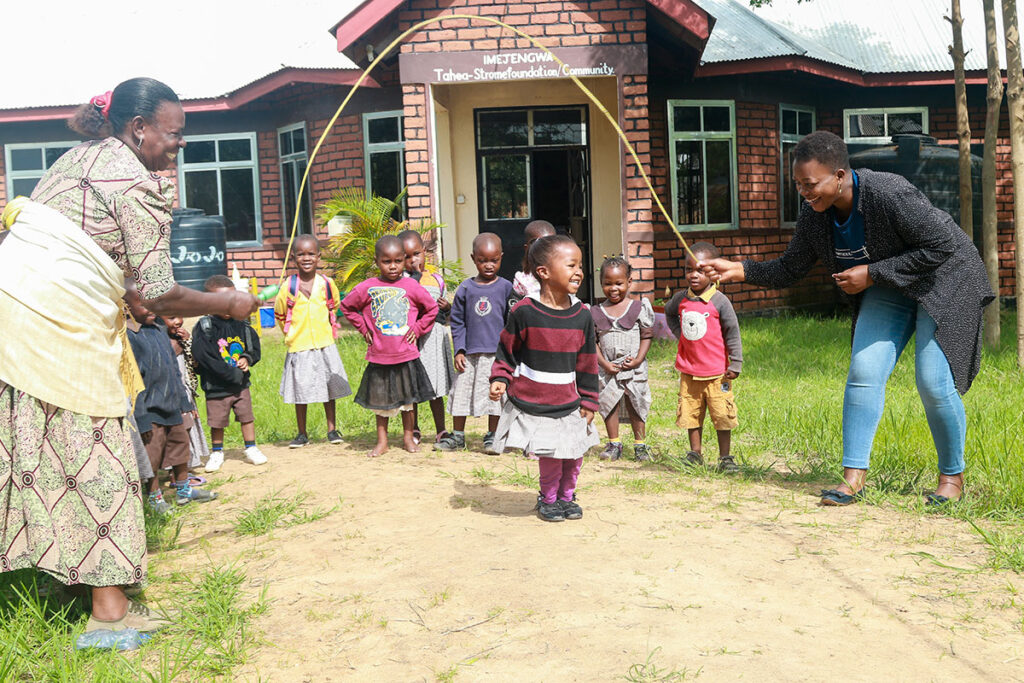Children and Families
Background Information
TAHEA Mwanza work on children and families focused on strengthening our work in ECD by creating a community of practice on early stimulation and early learning, nutrition, child protection and economic strengthening, in nutrition the emphasis was on the importance of the 1,000 days of life in children in addition to the knowledge and skills which were imparted on Infant and Young Children’s Feeding in the 1st phase where we trained community leaders, women, community volunteers, teachers, parents, paraprofessionals and the local government field staff on the importance of holistic approach to child development which mostly was focused on service delivery for service providers. In phase 2 we wanted to bring care and support closer to children by improving their care environments (families, communities and ECD centers) and responsive caregivers who are knowledgiable, with both parenting and child care practices which are sustained in the target communities i.e workforce who are able to facilitate learning through play, who are able to give psychosocial support to children, workforce who are able to respond to the child’s needs, workforce who are linked to families and community systems.
Objectives
- Increased compliance standards among 12 Community Based ECD centres in 10 targeted communities to offer quality ECD based services (National Guidelines and Minimum Standards) by 2020.
- Strengthened community microfinance program among actors to support and sustain 12 ECD centres quality services by 2020.
Project Values
- Systems Thinking
- Child centred learning
- Empowered community groups

Goals
- Increased quality measures among 12 community based ECD centres to comply for registration, community ownership and sustained ECD Centre services in 10 targeted communities by 2020.
Achievements
- Increased parents’ participation resulting from parents’ partnership programs conducted in all of the 12-community based ECD centres. This goes together with increased knowledge of parents and caregivers on the importance of ECD.
- Increased engagement with Government Systems for sustainability. 14 LGAs including District Social Welfare Officers and Ward Officials participated in inspection of 12 community based ECD centres for registration purpose.
- Improved learning environment of the 12 community based ECD centres supporting them to comply with standards. Improvement is having trained caregivers with retention, adequate play materials for the children, active parents’ participation and minimum levels of child protection measures in place.
Lessons Learnt
- Collective parenting; Child rearing is the responsibility of everyone around. We have learnt that in order to help promote positive parenting there is need to encourage everyone around the the child get involved into child care beyond the biological parents. This is the meaningful child rearing practice which has been their traditionally in the past.
Challenges/ Constraints
- Parents and caregivers with busy schedule and life dynamics
- Low male involvement
- Limited knowledge and skills of the counsellors
